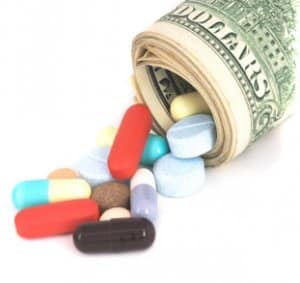The Department of Justice (DOJ) announced on January 9, 2015, that Daiichi Sankyo Inc., a global pharmaceutical company with its U.S. headquarters in New Jersey, agreed to pay the United States and state Medicaid programs $39 million to resolve allegations that it violated the False Claims Act. The DOJ alleged that Daiichi was paying kickbacks to induce physicians to prescribe Daiichi drugs, including Azor, Benicar, Tribenzor and Welchol.
“The Anti-Kickback Statute prohibits payments intended to influence a physician’s ordering or prescribing decisions,” said Acting Assistant Attorney General Joyce R. Branda for the Civil Division. “The Department of Justice is committed to preserving the independence and objectivity of those decisions, which are cornerstones of our public health programs.”
In this case, the government alleged that Daiichi paid physicians improper kickbacks in the form of speaker fees as part of Daiichi’s Physician Organization and Discussion programs, known as “PODs,” which were run from Jan. 1, 2005, through March 31, 2011, as well as other speaker programs that were run from Jan. 1, 2004, through Feb. 4, 2011. Allegedly, payments were made to physicians even when physician participants in PODs took turns “speaking” on duplicative topics over Daiichi-paid dinners, the recipient spoke only to members of his or her own staff in his or her own office, or the associated dinner was so lavish that its cost exceeded Daiichi’s own internal cost limitation of $140 per person.
“Drug companies are prohibited from using lavish entertainment and padded speaker program payments to induce physicians to prescribe their drugs for beneficiaries of federal health care programs,” said U.S. Attorney Carmen Ortiz for the District of Massachusetts. “Settlements like this one show that the government will continue to pursue health care companies that use kickbacks to promote their products.”
This case arose from a complaint filed by a former Daiichi sales representative, under the whistleblower provisions of the False Claims Act, which authorize private parties to sue on behalf of the United States, and to receive a portion of any recovery. The whistleblower will receive $6.1 million of the federal recovery.
Related links:
- Information on filing a whistleblower rewards claim under the False Claims Act.
- If you have knowledge of False Claims Act violations, fill out a Confidential Report Form.
